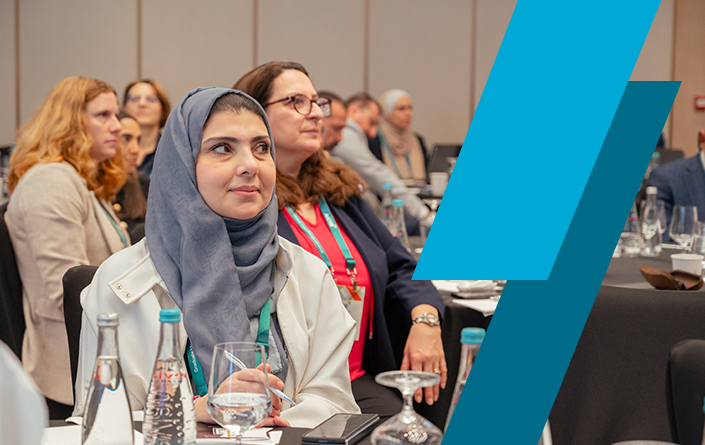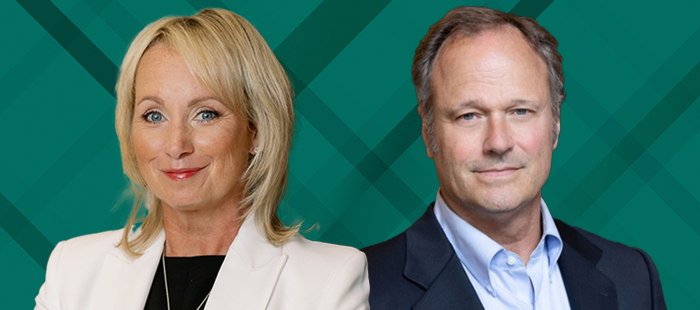Incorporating SDGs Into the Marketing Curriculum
- More business schools are offering programs that focus on the SDGs, but sustainability topics are not always integrated smoothly into the curriculum.
- A marketing professor believes such courses are strongest when faculty teach from a place of personal conviction, challenge traditional business assumptions, and incorporate current research.
- A business student notes that courses are most engaging when professors emphasize the relevance of the material and put student interests at the center of the content.
Since the Sustainable Development Goals (SDGs) were introduced in 2015, there has been a slow crescendo of calls for business schools to address issues of societal impact. This has led to new courses and programs that encourage students to question assumptions relating to the purpose of business and its role in addressing intractable global problems.
The two of us wanted to know: How can faculty present such courses in ways that are authentic and impactful? We drew lessons from marketing courses presented at the University of Sydney Business School, where one of us teaches and the other is a student. We approached the topic from our two different perspectives and came to complementary conclusions about how faculty can create compelling courses that unite business and sustainability content.
Ranjit Voola: The Professor’s Perspective
In recent years, I have begun shifting my academic career to a focus on the SDGs because I wanted to align my values with my role as an associate professor of marketing. My personal life experiences have greatly influenced my professional interests. My parents are missionary doctors in India who work with the extreme poor; I am the father of two daughters; and I am a kidney transplant recipient. These three facts have inspired me to want to alleviate poverty, address gender inequality, and operationalize kindness.
I have pursued these goals in large part by creating new business courses. For instance, I developed a novel SDG curriculum for the CEMS Master of Management program to address SDG 1, which aims to eliminate poverty. Originally called Poverty Alleviation and Profitability, the course will be renamed Leading for Purpose in 2024 as a way to take a more holistic and strategic approach to the SDGs.
I also have designed a Bachelor of Commerce course titled Marketing and Sustainable Development, which highlights the critical role of marketing in implementing SDGs in business strategy. Both courses were developed at the University of Sydney Business School.
Additionally, I collaborated with other professors to initiate an SDG and Marketing Network in the Australia and New Zealand region to drive research and teaching innovations at the intersection of marketing and sustainability. Through these experiences, I have identified three key insights that could help other professors develop programs that address societal impact.
1. Reflect on the ‘Why’
Alleviating poverty and reducing hunger are not only economic issues, but human issues. Before academics commit to creating programs that address such problems, they should ask themselves why they want to do so. In my case, I was inspired to construct an SDG curriculum in part because of my own life experiences. I think any time academics think about their “whys,” they will teach with more authenticity and conviction.
This is important, because it is more difficult to develop programs that espouse counterintuitive ideas—such as the notion that businesses can alleviate poverty and make profits ethically at the same time. Creating such courses requires professors to display conviction and perseverance, especially if they must take time away from research, overcome institutional resistance, or master a whole new body of knowledge.
Alleviating poverty and reducing hunger are not only economic issues, but human issues. Before academics commit to creating programs that address such problems, they should ask themselves why they want to do so.
Students are bombarded with messages about how businesses can “do good” or “change the world,” but they often encounter companies that say the right things about the SDGs but that engage in practices that make societal issues even worse. Students also know that some universities pay lip service to the SDGs while simply greenwashing the curriculum. When professors describe authentic motivations for engaging with the SDGs, students are more likely to be inspired, which leads to opportunities for transformative learning.
Professors should not only reflect on their own “whys,” but also encourage students to do the same. For instance, professors should invite students to identify their ikigai, a Japanese word that refers to the passion that gives joy to life. When students reflect on what matters to them in their careers, they begin questioning the traditional tenets of business, such as the primacy of shareholder value. They no longer believe that earning profits and doing good are mutually exclusive.
As students view the SDGs through the lens of their own personal experiences, they will find it easier to link human challenges to business. They will realize that they have agency in their work and the ability to make at least a small difference in the big problems of the world.
2. Challenge Traditional Assumptions
To profitably engage students with the SDGs, professors need a radically different mindset. Applying age-old assumptions to new challenges will not achieve the desired outcomes. Professors must facilitate debates and discussions about the fundamental nature of business. For example, in my Marketing and Sustainable Development program, these are some of the questions I ask students to consider:
- Is the purpose of business to make profits?
- Can businesses simultaneously alleviate poverty and make money justly and ethically?
- Can the discipline of marketing be a force for good—even though, in the past, marketing has been seen to contribute to societal problems such as inequality, climate change, and poverty?
- Is it always the best option to listen to customers’ needs and wants when developing sustainable offerings?
I use the analogy of a tree as I lead students through each SDG course. I have them investigate the hidden roots of social problems before examining the more visible branches, leaves, and fruits that have resulted.
To profitably engage students with the SDGs, professors need a radically different mindset. Applying age-old assumptions to new challenges will not achieve the desired outcomes.Essentially, I ask students to question fundamental aspects of the discipline so they can develop novel strategies for novel problems. To this end, I think about what assumptions need to be challenged, and I proactively incorporate them across my course materials, including assessments.
3. Incorporate Recent Research
When professors share the latest SDG scholarship within their disciplines, it legitimizes the course content and proves that a focus on societal impact is not just another fad in business education. Furthermore, research examples help students understand what role business can play in alleviating social problems. Professors can illustrate the scale of the challenges by also pulling studies from other fields.
I wanted to take a research-led approach to teaching my program on Marketing and Sustainable Development, so I looked for scholarship that examined the intersection of marketing and the SDGs. In addition, in my own research, I have made the case that business-to-business marketing scholars should specifically include the SDGs in their research on sustainability. As stated in my research, this gives scholars “a valuable opportunity to participate in the meta-narrative of the world, which is important to various stakeholders (e.g., governments and firms), and increasingly to marketing practitioners and students.”
I believe that by reflecting on their whys, challenging traditional assumptions, and incorporating research into their classes, faculty can create compelling course content on the SDGs—whether they teach marketing or any other business discipline. But is there more a professor can do to pique the interest of learners? Yes, according to one of my students who completed the Marketing and Sustainable Development course in 2022 and is a current bachelor’s student. Here are her thoughts.
Cali Doyle: A Student’s Insights
From my perspective, when course content is generalized and undifferentiated, I am much less likely to engage with it. Therefore, I would make two recommendations to professors:
First, clearly articulate the relevance of the course. If a degree is the culmination of course “stepping stones” that build necessary experience and expertise for the professional path students wish to take, students must perceive the relevance of every step. That relevance must be on display from the very first time students review the course outline—which might be considered the “elevator pitch” for the course. And it must be part of the knowledge they distill from every weekly class.
In my experience, learning about the SDGs was refreshingly different from mastering conventional business content. However, this made it more difficult for me to “fit” my new knowledge into my preexisting understanding of the business landscape. While making that adjustment is part of every student’s learning journey, it’s essential for the professor to facilitate those connections to help students cement their understanding of why they are taking a course.
My classmates were deeply invested in discussing their topics because the subjects had personal significance for them. The palpable passion of the class made the whole course more engaging.
Second, give students agency to co-create course material. Like customers, students know themselves best. When they’re allowed to personalize course materials according to their own interests, the unit is more engaging. It is also more relevant to their chosen career paths.
As I have pursued my degree, I have found that my passion for the beauty, fashion, and luxury industries has been largely unaddressed. This has established a disconnect between my university studies and my external work experience. But when we studied the SDGs in the marketing class, I had the opportunity to explore these principles in any context. Consequently, I came to recognize how omnipresent the SDGs are in a range of businesses, including those perceived as incongruent to sustainability, such as the luxury realm.
My classmates also appreciated the chance to relate the SDGs to their own academic interests. They were deeply invested in discussing their topics because the subjects had personal significance for them. The palpable passion of the class made the whole course more engaging.
Key Conclusions
In summary, we recommend five ways for professors to create compelling courses: Reflect on why it is an important topic to teach. Challenge traditional disciplinary assumptions. Incorporate research into the teaching process. Emphasize the relevance of the course. Put student interests at the center of the content.
And when the subject of the course is societal impact, we would like to add a sixth recommendation: Clearly and repeatedly demonstrate how the SDGs apply to or challenge preexisting business strategies.
If professors can act on all these suggestions, their classes will become points of engagement for students, rather than weekly checkboxes for required courses.






